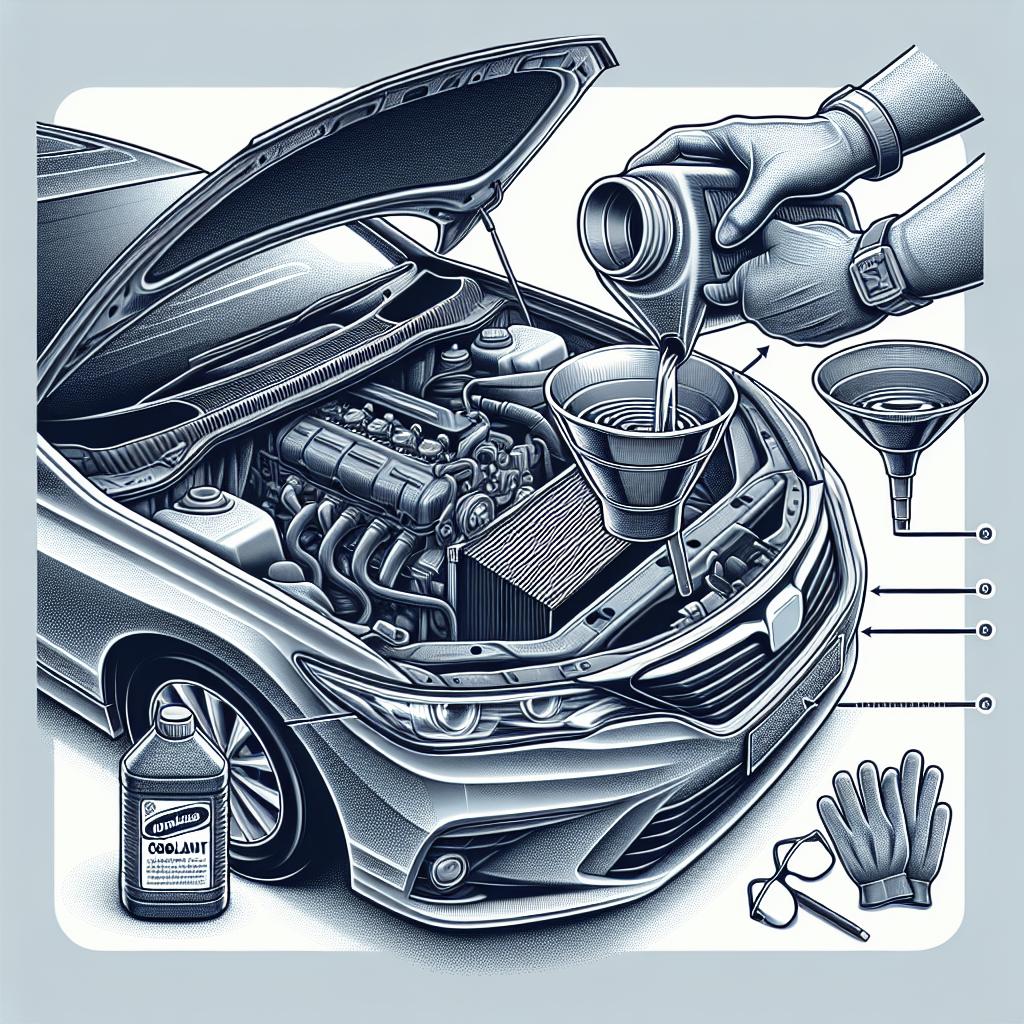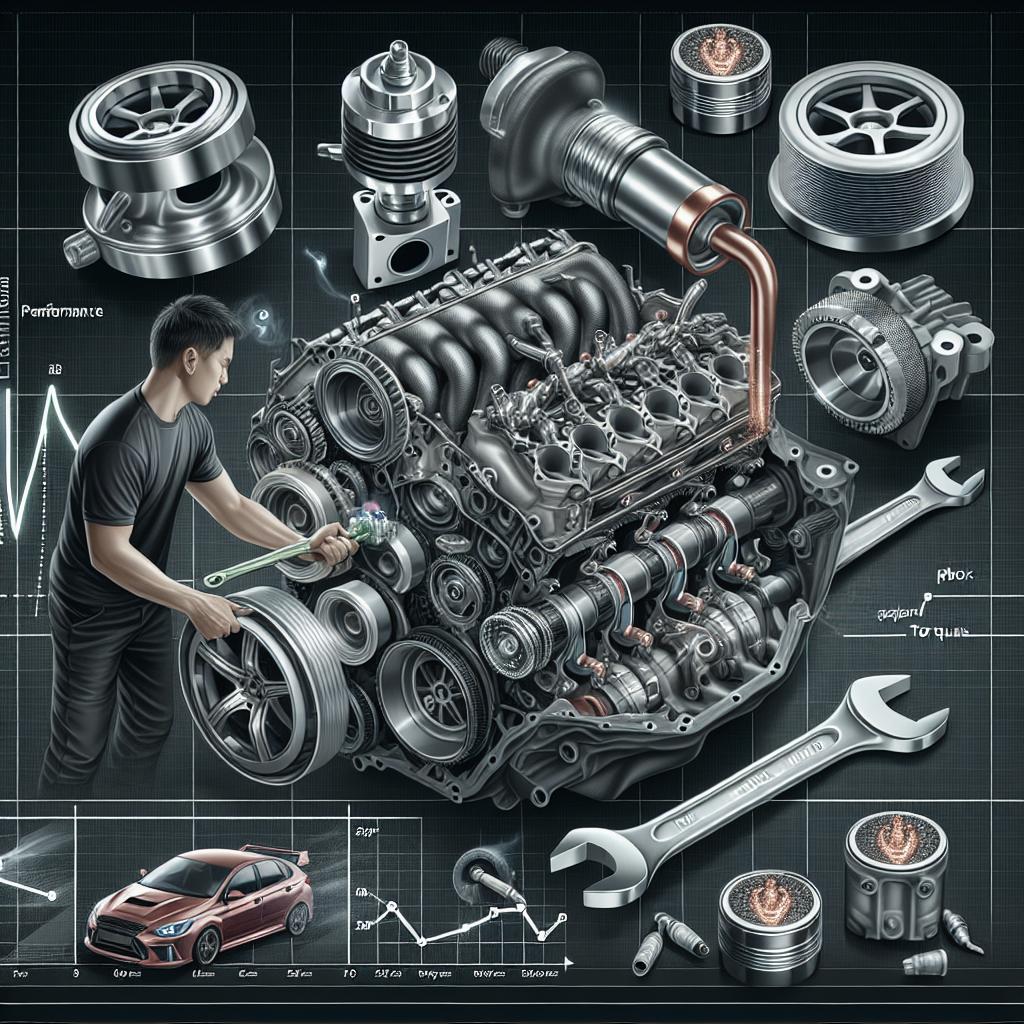“`html
How to Enhance Car Engine Cooling Performance
Maintaining optimal engine cooling performance is crucial for the longevity and efficiency of your vehicle. This guide delves into the significance of a well-functioning engine cooling system and outlines practical tips to ensure your car’s engine stays at the perfect temperature. By regularly checking and maintaining components like the coolant, radiator, and cooling fans, you can prevent overheating and potentially costly repairs. Let’s explore the various strategies to improve your car’s engine cooling efficiency, ensure peak performance, and enhance your driving experience.
Understanding the Importance of Engine Cooling
The engine cooling system plays a pivotal role in keeping your vehicle’s engine temperature within the optimal range. Without it, engines would rapidly overheat, leading to severe damage. The cooling system’s primary function is to dissipate excess heat produced during combustion, ensuring the engine operates smoothly and efficiently. This system, involving components like the radiator, coolant, and fans, maintains an ideal temperature for the engine to function optimally.
Overheating can severely affect engine components, resulting in considerable wear and even catastrophic failure. It is vital to understand how each part of the cooling system contributes to preventing your car from overheating. Awareness and proper maintenance of these components are essential for any car owner to avoid complications and costly repairs down the line.
Tips to Optimize Your Car’s Engine Cooling Efficiency
1. Regularly Check the Coolant Level
Ensuring your car’s coolant level is sufficient is one of the most straightforward ways to maintain optimal engine cooling. The coolant prevents overheating by absorbing heat and then dissipating it through the radiator. It’s vital to check the coolant level regularly, especially before long journeys, to ensure the engine is adequately cooled. If the coolant is low, top it up with a mixture of antifreeze and water, following the vehicle’s specifications.
Monitoring the coolant level is also crucial because it can indicate potential leaks or issues within the cooling system. If the coolant level regularly drops, your vehicle may have a leak or another issue requiring immediate attention. Remember, the cooling system must remain sealed for the coolant to function correctly. Therefore, regular checks can prevent small problems from escalating into significant repairs.
2. Replace the Coolant Periodically
Over time, coolant loses its effectiveness due to contamination and degradation. Deposits from corroded metals and regular wear can reduce the coolant’s ability to manage engine heat. Consequently, it is crucial to replace the coolant periodically as recommended in your vehicle’s manual to maintain the efficiency of the cooling process.
Flushing and replacing the coolant is a relatively simple process that can significantly impact your car’s performance. Fresh coolant is more effective in transferring heat, leading to better engine efficiency and preventing overheating issues. It also helps in extending the lifespan of components like the radiator and water pump, which can corrode over time if the coolant is not maintained properly.
3. Inspect the Radiator
The radiator is central to the cooling system, acting as a heat exchanger, transferring the heat from the coolant into the air. Over time, debris, dirt, and corrosion can impair the radiator’s efficiency, causing the engine to overheat. Regularly inspecting and cleaning the radiator will ensure it performs optimally.
Examine the radiator fins for any blockages and ensure that the coolant flows freely through the system. A blocked or damaged radiator can lead to a spike in engine temperature, so addressing these issues promptly is crucial for maintaining your car’s cooling efficiency. Routine cleaning with a soft brush and a low-pressure hose can clear debris and enhance the air circulation needed for optimal cooling.
4. Check the Thermostat
The thermostat regulates the engine’s temperature by controlling the coolant flow to the radiator. A malfunctioning thermostat can result in engine overheating or undercooling, which might go unnoticed until it causes significant damage. Therefore, checking the thermostat’s functionality is crucial for sustaining cooling system health.
If your thermostat is stuck in the closed position, the coolant won’t reach the radiator, leading to overheating. Conversely, if it’s stuck open, the engine might never reach its optimal operating temperature. Regular checks and timely replacement of a faulty thermostat can prevent these issues, ensuring the engine remains cool under all operating conditions.
5. Keep the Cooling Fans in Check
The cooling fans play an essential role in maintaining the engine’s temperature, especially when the car is idling or moving slowly. These fans work by drawing air through the radiator, aiding in the heat exchange process. It’s vital to ensure these fans are operational and performing efficiently.
Inspect the fans for any mechanical faults or electrical problems that might impair their functionality. Listen for unusual sounds and check if they’re turning on when the engine reaches higher temperatures. Replacing worn-out or malfunctioning fans is crucial for maintaining the cooling system’s efficiency, safeguarding your engine from potential overheating.
Final Thoughts
Optimizing your car’s engine cooling performance involves a mix of regular maintenance and timely intervention. By understanding and attending to the components that contribute to the cooling system, you can ensure a reliable and prolonged engine life. Here’s a summary of the steps to keep your engine cool and efficient:
| Tip | Action |
|---|---|
| Check the Coolant Level | Inspect and top up the coolant regularly; look for leaks. |
| Replace Coolant Periodically | Flush and replace the coolant per the vehicle’s specifications. |
| Inspect the Radiator | Clean radiator fins and check for blockages or damage. |
| Check the Thermostat | Ensure it’s functioning to avoid overheating or undercooling. |
| Keep the Cooling Fans in Check | Inspect for mechanical or electrical faults; replace if necessary. |
“` This HTML code provides a structured format with specified subheadings, ensuring clarity and comprehension for readers interested in enhancing their car’s engine cooling performance.


